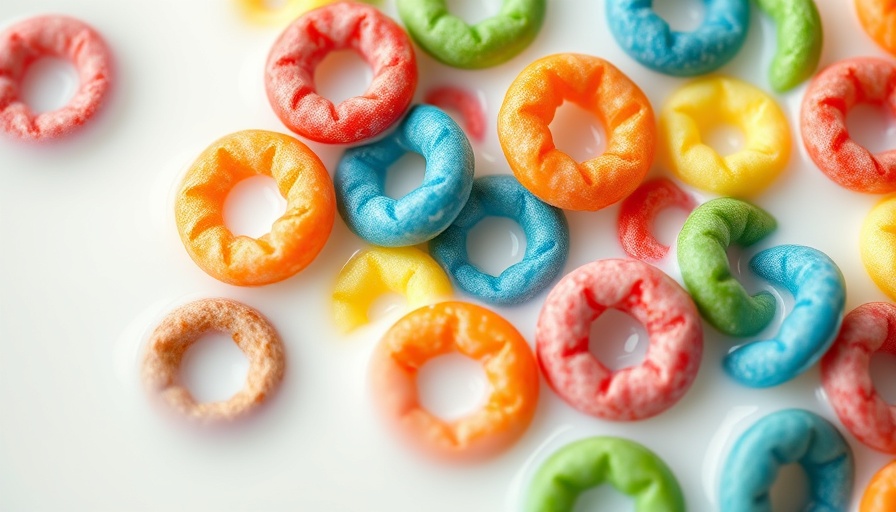
Why Phasing Out Artificial Food Dyes Matters
In an era where health-conscious consumers are becoming more vocal, the recent decision by Robert F. Kennedy Jr. to phase out artificial food dyes is hailed as a significant shift towards healthier eating standards. Artificial dyes have been long associated with potential health risks, including behavioral issues in children and links to chronic diseases. By taking a stand on this issue, Kennedy not only emphasizes the necessity of natural ingredients but also opens a dialogue about the importance of transparency in food production.
Understanding Artificial Food Dyes
Artificial food dyes, commonly found in snacks, beverages, and candies, are synthetic pigments derived from petroleum products. While they improve the appearance of food, numerous studies suggest they could contribute to health concerns. For those seeking optimal health and wellness, eliminating these chemicals can lead to a more wholesome diet that promotes better mental and physical well-being.
The Connection to Health and Wellness Trends
This movement away from artificial ingredients perfectly aligns with the growing health and wellness trend throughout the country, including areas like San Antonio. Consumers are increasingly seeking out health and wellness products that prioritize clean labels and natural ingredients. The rise of health and wellness blogs and community-centric wellness events highlights this collective desire to engage in lifestyles that nurture both body and mind.
A Holistic Approach to Food Choices
Merging the movement against artificial dyes with principles of lifestyle medicine can inspire a holistic view of health. Emphasizing nutrition as a cornerstone of health empowers individuals to make informed choices about their diets. For instance, natural remedies and local produce can contribute positively to health and wellness, serving as alternatives to processed foods laden with artificial additives.
Potential Risks and Challenges
While phasing out artificial food dyes is a step towards better health practices, it also presents challenges for manufacturers and consumers alike. Industries dependent on these dyes for color enhancements may face significant adjustments in their product formulations. Additionally, consumers might encounter higher prices and limited product availability as brands shift towards more natural substances, which brings us to the fundamental question—how willing are we to adapt for the sake of our health?
Building a Community of Educated Consumers
As more people educate themselves about the impacts of their food choices, community health and wellness initiatives will play a critical role in this transition. In cities like San Antonio, local health workshops and nutritional events can empower citizens with knowledge about the dangers of artificial food dyes, while encouraging support for businesses that prioritize natural ingredients.
Embracing Natural Foods for a Healthier Tomorrow
Deciding to eliminate artificial food dyes from one's diet can feel daunting, yet it also opens doors to a variety of wonderful, natural food options. By exploring farmer's markets and local health and wellness businesses, individuals will discover the vibrancy and taste of wholesome, made-from-scratch meals. Ultimately, sourcing natural foods can cultivate deeper connections with our community and inspire healthier lifestyles for everyone.
The step taken by RFK Jr. is more than just a dietary choice; it’s a movement towards reclaiming our health through natural food sources. Join the conversation about healthier living by exploring your local health and wellness events and advocating for transparency in what we consume.
 Add Row
Add Row  Add
Add 




 Add Row
Add Row  Add
Add 


Write A Comment